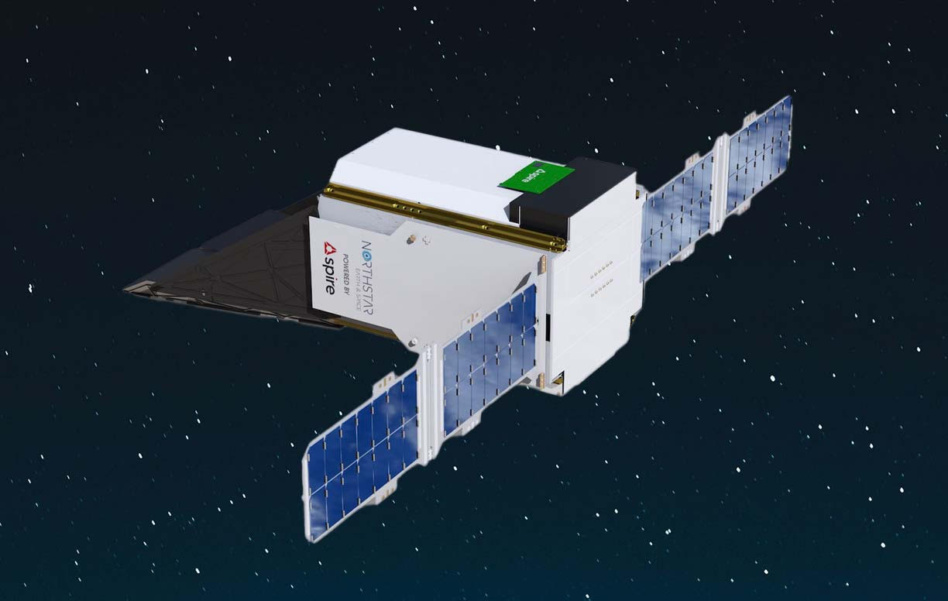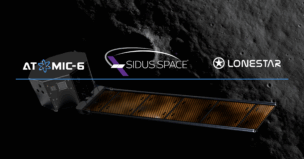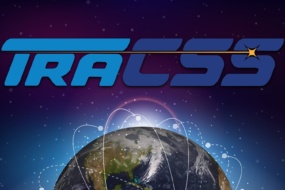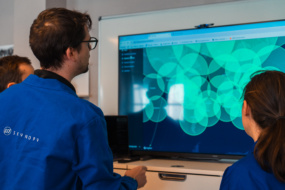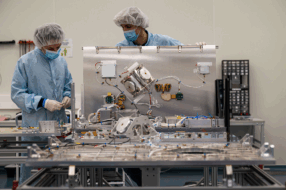NorthStar Earth and Space, a Canadian startup building a constellation for in-situ space situational awareness (SSA), announced this morning it has closed a $35M Series C. New York-based PE shop Cartesian led the round.
The round also included participation from Telesystem Space Inc., the Luxembourg Future Fund, the government of Quebec, and the Luxembourg Space Sector Development Fund. Cartesian’s investment is the company’s first from a US entity, helping to accelerate its push into US markets as it prepares to deploy its constellation of Skylark electro-optical satellites.
In-situ SSA?
Most of the tracking data we have now about objects in the space domain comes from ground-based sensors. As potentially tens of thousands of satellites enter Earth orbit in the coming decade, accurate SSA data and space traffic management (STM) tools will be essential for keeping the orbital environment clean and operable.
NorthStar is confident that its space-based sensors will add to the body of current tracking data by increasing the accuracy of trajectory estimates and augmenting the catalog of known objects from a closer vantage point.
“We are actively moving through space, scanning the sky, to pick up objects as they orbit,” NorthStar CEO Stewart Bain told Payload. “And that gives us an advantage to give better coverage, higher precision, and earlier warnings about what objects are doing and what objects can pose threats.” The combination of this data with ground-based systems, he said, gives a more complete picture of the space domain environment.
NorthStar’s space-based Skylarks are designed to track objects from LEO to GEO. The satellites themselves will reside in LEO, and keep an eye out for objects smaller than what’s visible from the ground.
The target visibility by orbital regime, per Bain:
- >1cm objects in LEO
- >7cm objects in MEO
- >40-50cm objects in GEO
Bain also said that “there’s not a limit to the number” of objects each satellite can track at once. “If you have to process more data, you just stack on more processors and more computing.”
Gearing up for launch: NorthStar signed an agreement with Virgin Orbit in October to launch the first three satellites in its planned constellation of 24. That launch is slated for sometime in mid-2023, and Bain said that everything is currently on track. The company hopes to begin service as soon as possible after commissioning the trio of Skylarks.
What’s next?
In short, hiring and scaling. Right now, NorthStar employs 62 people, mostly in Canada with a few in the US and one in Luxembourg.
- Over the next few months, the company is aiming to hire more than 25 people across the three offices to scale up its operations and sales and prepare for the beginning of service.
- Beth Michelson and Paul Pizzani from Cartesian will also join the NorthStar board of directors and help scale the company’s US sales efforts.
The view from the top
“We need to get to a better spot when it comes to space situational awareness and space traffic management,” Jim Bridenstine told us in a recent Pathfinder taping. The former NASA Administrator believes that SSA is one of the space community’s top jobs to be done in 2023.
“We have got to get smarter about how we regulate how much stuff we’re putting into space, and it’s gonna require an international effort,” Bridenstine said. Forging an international path forward requires more comprehensive characterization of the space domain. SSA providers that are able to improve upon our current baseline understanding are poised to see high demand for their services in the coming years.
